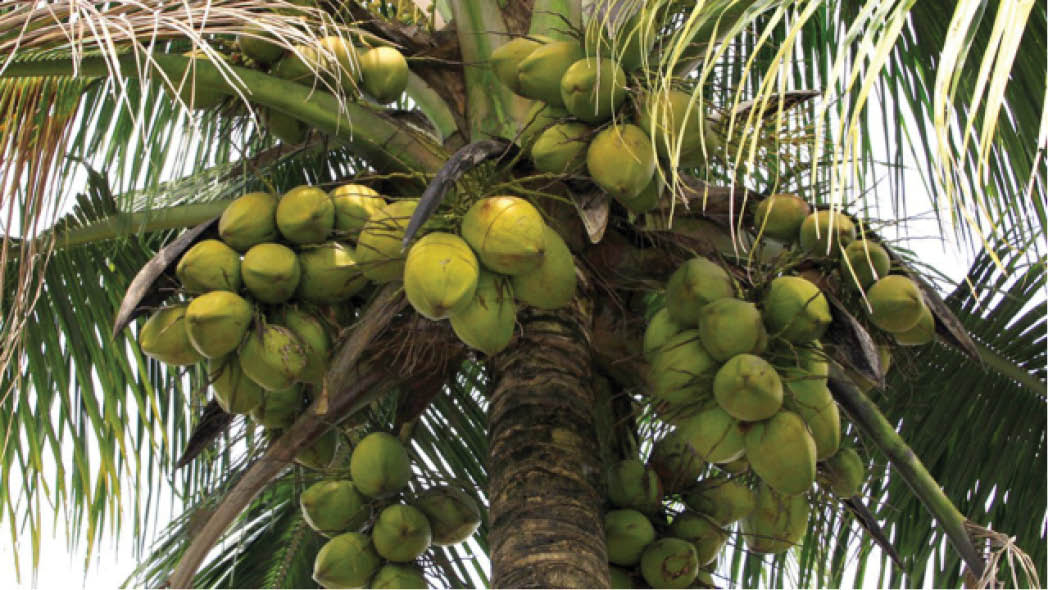How Nigeria can benefit from multi billion naira coconut value-chain
Experts in coconut value chain have expressed worried that the country is not tapping the potentials abound in world’s coconut market. The global coconut products market size is expected to reach USD 95.64 billion by 2025, according to a new report by Grand View Research, Inc. It is anticipated to expand at a CAGR of […]

Expert say coconut tree can live up to 100 years under good condition
Experts in coconut value chain have expressed worried that the country is not tapping the potentials abound in world’s coconut market.
The global coconut products market size is expected to reach USD 95.64 billion by 2025, according to a new report by Grand View Research, Inc. It is anticipated to expand at a CAGR of 17.8 per cent during the forecast period.
Our Agric Editor, who has been monitoring the sub-sector, reports that Indonesia has been the largest exporter of coconuts in the world, followed by Thailand and Vietnam. The three countries hold about 23 per cent share of total exports while Cote d’Ivoire, Malaysia, the Netherlands, Mexico, Guyana and India, all together, make up 17 per cent of the total exports.
In Nigeria, coconut is produced in about 22 states of the federation. However, the main producing states are Lagos where about 70 per cent of national output comes from, others are Akwa Ibom, Delta, Edo, Ekiti, Ogun, Ondo, Oyo, Rivers and Taraba states.
According to statistics from the Raw Material Research and Development Council (RMRDC), despite the huge potentials, total local production can only meet about 20 per cent of national demand and as a result, the country has continued to import coconut at increasing quantities over the years.
The Director-General of the Council, Professor Hussaini D. Ibrahim, said in 2019, more than 80 per cent of national requirement was met through importation and the country expended $219,446.53 and $293,214.22 on coconut importation in 2019 and 2018 respectively.
Why Nigeria is not doing well in coconut production
Mr. Segun Ajaguna, a renowned coconut farmer in Lagos, said the main constraint of the coconut sub-sector is low production which is attributable to low productivity and low expansion and rehabilitation of the area under coconut production.
Key factors for low productivity, he said, include poor coconut husbandry practices, effect of drought, stress, poor soil fertility, incidence and severity of pest and diseases that were estimated to have killed more than eight million palms.
Other factors, according to him, are the old age of coconut trees and the predominant planting of low yielding coconut varieties.
Professor H.D. Ibrahim also listed other factors limiting coconut production to include dependence on importation of coconut seedlings from Malaysia and the neighbouring West African countries as the local coconut variety, the Guinea tall variety, cannot compete in terms of yield and the time of commencement of fruiting with the dwarf varieties. The local Guinea tall variety, starts fruiting between 9-15 years while the imported dwarf variety commence fruiting between 3 to 4 years.
What should be done
A retired agric extension officer, John Iroko, said coconut farmers in the country must increase production and adopt modern production techniques to guarantee quality yields.
He said once local production is achieved, there is ready market for the product considering its wide application.
To promote massive production, the federal government has identified coconut as one of the seven critical cash crops in the country.
The government through the RMRDC had earlier highlighted the untapped potentials of many tree crops following which the Council organized the first-ever Investors’ Forum entitled “Coconut as an Industrial Crop and Raw Materials” in collaboration with Lagos State Government. The forum recommended the need for a clear policy on coconut development in Nigeria and also, the establishment of a Coconut Development Agency in Lagos State. It further recommended the gradual but phased replanting of the old coconut trees in Nigeria with improved dwarf coconut varieties. The recommendations led to the establishment of the Lagos State Coconut Development Committee and the conduct of a Benchmark Survey on Coconut Production in Lagos State.
Following the success achieved with the 1st Investors’ Forum, a second Investors Forum on Coconut was organised to harmonise the pathway to coconut and coconut value chain development in Nigeria.
In recognition of the tremendous contribution of the Council to coconut development in Nigeria, the Lagos State government called on the expertise of the Council as Chairman of the Organizing Committee to midwife the hosting of the First International Coconut Summit in Lagos State. The highlight of this event was the presentation of 3,000 improved seedlings of coconut developed by NIFOR under the auspices of RMRDC to each of the 57 Local Governments and LCDAs in Lagos State. The communiqué of the International Coconut Summit recommended the need for more improved seedlings for farmers.
Base on this, the council commissioned the production of another 5000 improved coconut seedlings by NIFOR for distribution to farmers all over the country through the National Coconut Producers, Processors and Marketers Association of Nigeria (NACOPPMAN) at a special occasion to commemorate the World Coconut Day in September 2019.
Professor Ibrahim hopes that if all coconut development issues are adequately harmonized and efforts at developing coconut value chain locally are sustained, Nigeria will, within the next few years, be a major force to reckon with as a major player in coconut production and processing globally.
The country, he said, would be able to generate more than N20bn in foreign exchange equivalent through coconut and its derivatives export.
